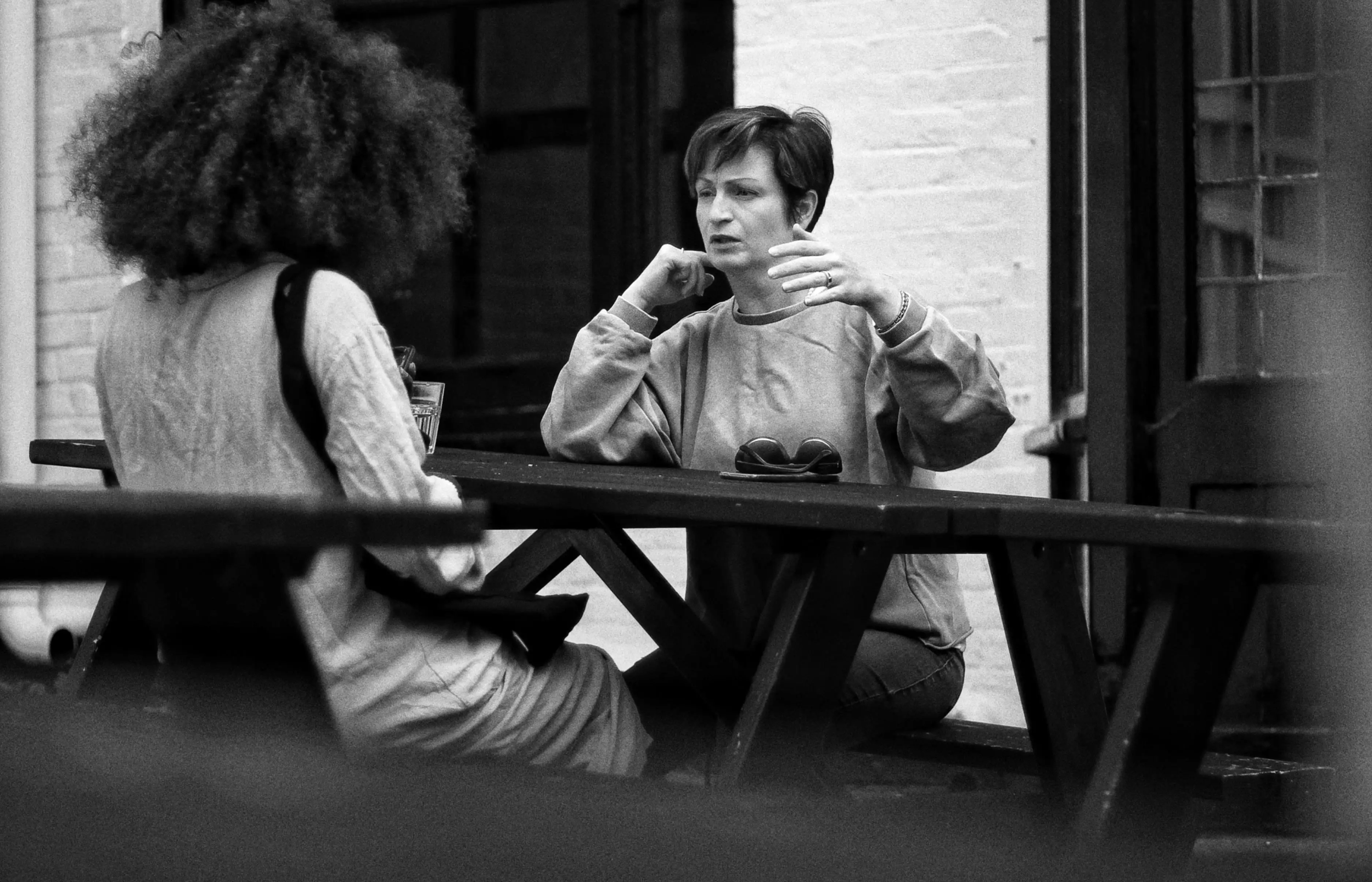Friction into Traction: A Case Study of Friction in Strategic Ethnography
Our paper on three productive frictions in today’s business setting, presented by Maria Cury at EPIC 2023.
Stepping out of the corporate comfort zone in medical care
Zlatko Rihter (CEO at Mölnlyck) speaks to Martin Gronemann about trusting the ethnographic process, embracing a customer-oriented approach, and uniting the worlds of business and social sciences to build strategy.
Vozes, não dados: construindo conexões entre clientes e participantes da pesquisa
Camila sentou-se em seu sofá rosa desbotado, desenfaixou a atadura em torno da panturrilha e me mostrou um ferimento roxo, uma parte da pele em crosta e uma parte úmida. Sua filha Cecilia sentou na beirada de uma cadeira no canto, completando os vazios na história:
Screenplay, Novel, and Poem: The Value of Borrowing From Three Literary Genres to Frame Our Thinking as We Gather, Analyze, and Elevate Data in Applied Ethnographic Work
Applied ethnography still struggles with the fundamental challenges of framing research to obtain ‘thick’ data, making sense of data in teams and with clients, and making a convincing case with data in challenging environments.
Why Surveys Often Paint a False Green Picture of Consumers
Surveys can provide validate insights about consumers, but when it comes to understanding what keeps people from going green, they’re often unreliable.
MedTech Views: The Surprising Truth About Succeeding With Innovation
ReD helped Coloplast understand a key insight about its users: that not all bodies are shaped the same.
Pharma Exec: Develop Drugs For People, Not Just Bodies
Pharma companies are taking steps toward "patient-centric" healthcare by using patient insights to guide drug development and clinical trials.
No, big data will not mirror the human brain — no matter how advanced our tech gets
There is an assumption in tech circles that people and computers think alike. But this doesn’t do justice to the wonders of the human mind.
Function And Change In China: Reviving Mauss’ “Total Social Fact” To Gain Knowledge Of Changing Markets
This case study of alcohol in China revives Mauss’s concept of the total social fact as a means of understanding new markets.
A Case for Ethnography in the Study of Corporate Competencies
In business thinking, ‘core competencies’ have long been seen as the critical factor that distinguishes great from good. Great companies have strong core competencies that they constantly leverage and develop. On the other hand, companies who do not understand their own strengths and weaknesses cannot execute at the highest proficiency.
Kommunikationsforum: Democratize Creativity
In the world of marketing, creativity is surrounded by a high level of mystique. We imagine that ideas appear in the heads of gifted individuals from out of nowhere. Because it seems that no one really understands creativity, the art directors of the world can charge exorbitant prices for their creative services. This is the case even though only about 50 percent of marketing campaigns are successful. However, California-based consultancy IDEO has developed a more rigorous approach to working with creativity.











